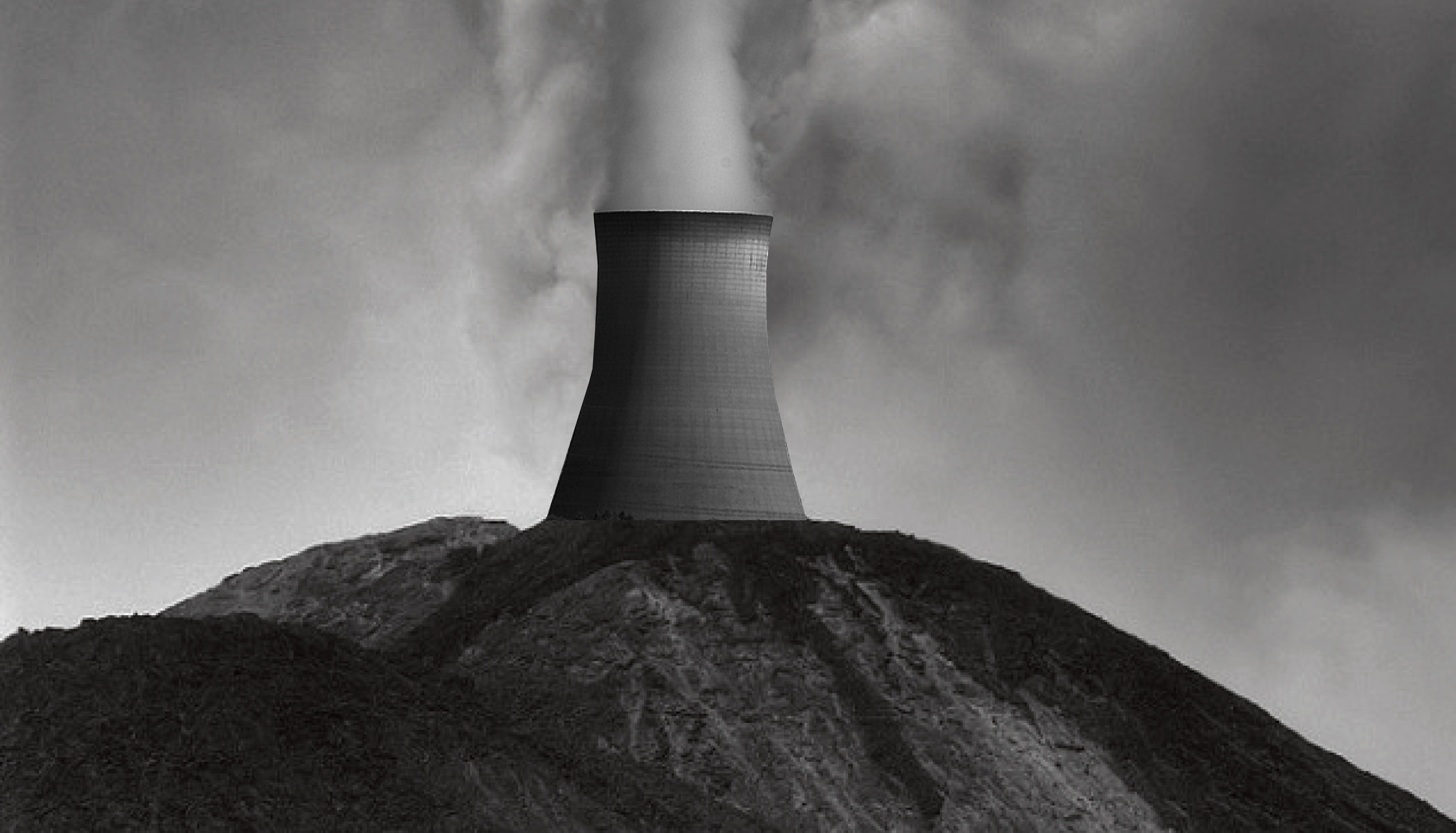
The monstrous Black Volcano which has loomed and leered menacingly over Happy City since it was founded has finally erupted.
Vast rivers of lava are streaming down the mountain slopes towards the human settlement and ash is already beginning to rain on the rooftops. It is only a matter of time before a pyroclastic cloud scorches instant death onto the people or the molten rock pours into the narrow streets and kills everyone.
But in the city there is complete calm. Reassured by the King’s insistence that they are in no danger and that the volcano is not actually erupting at all, the city folk are going about their everyday lives. Goods are bought and sold, meals prepared and eaten, couples married and children educated.
There was a brief moment of confusion when it was discovered that the Happy City authorities had cut down every single tree in the Great Gardens in order to build a massive wooden fence on the northern limits.
But rumours that this was designed to hide from view the erupting Black Volcano were soon dismissed as malicious paranoid fantasies, as the King explained that it was a completely necessary step to protect his people from blood-thirsty foreign pirates and smugglers.

And so, as certain extinction draws ever closer, the people of the Happy City keep bustling around, making money, gossiping, squabbling over the petty details of their lives and reporting to the Official Inquisitor any citizen seen to be sniffing suspiciously at the sulphur-laden air, cocking an alert ear to the distant rumbling or trying to peer through the gaps in the Great Anti-Crime Fence in order to see if the lava is close.
That is what it feels like to me to be living at the start of the 21st century.
Humankind has taken a dangerous wrong turn. Modern capitalist society is an out-of-control nightmare. The future mapped out for us can only lead into the dead-end of destruction, disaster and death. Tinkering with the detail will change nothing. We need to abandon this experiment before it is too late and live in a completely different way. Otherwise the Black Volcano of Industrialism will kill us all.
Why are so many people scared of saying as much, even when they know deep down it is true? Why isn’t there a vast crescendo of voices saying just this, as the reality of the mess we are in becomes more and more apparent, as temperatures rise and the metaphorical lava creeps ever closer?
Instead, it has become almost taboo to criticise industrial society as a whole, as I have experienced myself on several occasions. “We’ve got to be careful here,” well-intentioned individuals have told me. “Remember, technology itself is not the problem. Technology is neutral. It’s who controls it that counts!”
Oh really? So a nuclear power station run by a workers’ co-op would no longer represent any sort of environmental danger, then? And fracking every inch of the countryside, injecting toxic fluid into every aquifer, would be entirely benign if the whole thing were managed by a not-for-profit community trust?

Of course, if we had actual democracy, if these things were not determined purely by the demands of profit, then none of this would be happening in the first place. Which is exactly my point – you can’t separate industrialism from capitalism and you can’t separate capitalism from industrialism. If we want to end capitalism (which I for one certainly do!), we will also necessarily be doing away with industrialism.
And yet those who balk at the anti-industrial message often describe themselves as anti-capitalist. “We need to watch out that we don’t slip into some kind of primitivism here”, they murmur, eyes lowered, when the embarrassing opinion is openly voiced in their presence.
The p-word is, in itself, a frightening accusation. It carries with it undertones of barbarity, violence, an abandonment of the thinking part of the human brain and a retreat into raw animal instinct.
The same subtext is communicated when you are told you want to “drag people back to the Stone Age”. In many people’s minds, I suspect, the Stone Age is, at best, the fantasy comic world presented by the 1960s US cartoon series The Flintstones, in which people live an entirely stone-centred existence and boast names such as Rubble, Slate and Rockhead, while otherwise adopting the lifestyle of a mid-20th century American consumer household.
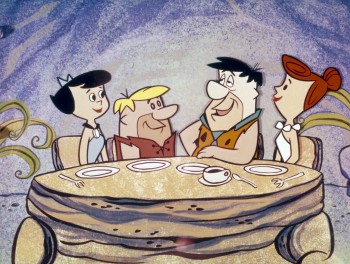
At worst it would be a life of sheer misery and tedium, a regression to a brutal and squalid mode of existence that could scarcely even be termed human.
It does not seem to register that Stone Age living would actually have involved living in forests, not having to report to work or the Job Centre, swimming in rivers, sitting around camp fires, eating, dancing, having sex and all the other things that people seem to enjoy doing when they are on holiday.
The sneering certainty of the champions of the industrial age is that anyone who disagrees with them is basically stupid and “unrealistic”. It’s no wonder people are frightened to say they would welcome the end of the industrial capitalist system when they suspect that some know-all will pop up and poke pointed fun at them, tarring them as muddle-headed simpletons spouting ridiculous and dangerous nonsense.
Never mind that the anti-industrial position has been eloquently articulated by important thinkers ranging from William Morris to Theodore Roszak, from Herbert Read to Mahatma Gandhi, from E.F. Schumacher to Kit Pedler, from René Guénon to Miguel Amorós – the insults keep coming.

Another clichéd put-down is the implication that there is something sociopathic about the wish to dismantle industrial society, that a deep love of the natural world somehow goes hand-in-hand with a deep hatred for humanity and a sinister, callous desire to see millions of people die in order to reduce population levels.
This smear is absurd in several ways. Firstly, population itself is not even the issue for anti-industrialists. Twenty billion people living like Indian peasants may well be feasible. Twenty billion people living like American consumers is certainly not.
Secondly, industrial society is not a response to the need of feeding an expanding world population. Indeed, it goes out of its way to artificially stimulate population growth, in order to fuel the incessant economic growth on which it depends – more people, more production, more consumption, more financial exchange, more profit.
Thirdly, the only future that is bound to lead the deaths of millions of human beings is the one that continues indefinitely on the current path of pollution, exploitation, environmental destruction and war. It’s the industrial capitalists who are the real sociopaths, not their opponents.
Combined with the criticism above is sometimes the insinuation that critics of industrialism are all potential dictators who want to somehow impose their vision on everybody else. Pol Pot is sometimes mentioned in this respect.
I have never understood this. An opinion is an opinion. If I express a view, I may be trying to convince other people that I am right, but I am not forcing them to agree with me or go along with my ideas. How could I? I personally have no potential means of imposing my views on anyone!
As an anarchist, I am not even in the game of wanting to “seize the reins of power” and impose my views in that way. Compare that with the levels of violence constantly used by the industrial capitalist system to impose its own will, suppressing all resistance to its nature-destroying expansion, and it is plain that the accusation is being levelled at the wrong target.

Another weapon used to try and silence anti-industrialists is the claim of hypocrisy. I remember attending a talk by the American author John Zerzan at Conway Hall in London in September 2000, at which he was the subject of constant jeering, childish taunts by a group of so-called radicals who didn’t much appreciate his criticism of modern capitalist civilization.
On their pathetically shallow level of attack, they were able to score an easy goal by pointing out that Zerzan had arrived in the UK by airplane, a polluting product of the world he condemns. But even if had managed to cross the Atlantic Ocean in a hemp-knitted canoe they would not have let him off the hook, as he was declared guilty of wearing spectacles.
Let’s be clear about this: it is not hypocritical to criticise the world you live in or to live in the world you criticise! If you were on the deck of the Titanic when it hit the iceberg, what would be the right course of action? To jump in the nearest lifeboat to save your own life? Or to raise the alarm, tell us many other people as possible, try to save lives other than your own?
Yes, there are those whose response to the modern world is to have nothing to do with it at all and who retreat into the forests or the mountains to live off-grid and close to the land. I am often attracted by that idea myself.
But if John Zerzan had done that several decades ago, we would never have heard his voice. He has assumed the responsibility of warning other people, warning society in general, as to what he sees going wrong and what we might do about it.
In order to ensure his anti-industrial warning is heard, he has chosen to make some use of industrial printing presses, industrial computer technology and industrial means of transport. He has stayed on the deck of the sinking ship for all the right reasons!
So far I have been focusing on the stigma currently attached to anti-industrial thinking by its many opponents. The prospect of being called a stupid, murderous, dictatorial hypocrite could itself be enough to put a lot of people off opening their mouths!
But there are undoubtedly internal factors at work as well. A few years ago, when I was speaking at the Sussex graveside of the great Victorian environmental writer Richard Jefferies about his vision of a non-industrial future, a woman politely informed me that she couldn’t go along with that at all, as she enjoyed the “little luxuries in life”.
I am sure she is not alone. All of us can probably think of some aspect of modern life that we would rather not do without. For some people, particularly parents, it might be the washing machine. For others, the car or motorbike. Or maybe’s it’s recorded music. Cinema. The internet.
Just as every good thing has a bad side, so does every bad thing have its good aspects. Modern society is no different. There are some enjoyable things about it and I wouldn’t pretend otherwise.
There are also some very useful things. Even if you take into account the amount of diseases caused by industrialism, the life-saving technology of modern medicine must have made millions of individual lives less brief and painful.
However, it seems to me that there is a fundamental misunderstanding among many people as to exactly what is at stake here, what the real choices are.
In their minds, perhaps, the alternatives concerning industrial society are:
1. Pull the plug and go back to living in a simple, basic, grubby kind of way without all the “little luxuries” we have got used to.
Or
2. Carry on as we are now, with more technological progress and maybe certain modifications to help the environment.
Understandably, in this context they prefer the idea of things carrying on much as they are.
But this is not the choice we face! In truth, the real alternatives are:
1. Pull the plug and go back to living in a simple, basic, grubby kind of way without all the “little luxuries” we have got used to.
Or
2. Carry on as we are now, bequeathing future generations an increasingly uninhabitable environment, where air, water and everything else becomes more and more toxic, other species gradually die out and we finally bring about the extinction of all life on the planet.
In this context, it is far from understandable to pick option 2! The “little luxuries” are more important than life itself? What is wrong with people? Can they really not see the smoke billowing from the top of the Black Volcano? Don’t they know what it means?
Even if you have come to the conclusion that industrial society is out of control, that it does need to be dismantled, and that we do need to envisage an entirely different future, you will still come up against the pro-industrialists’ all-time favourite rhetorical weapon: “You can’t turn the clock back!”
This phrase has always intensely irritated me, if only because it is obviously untrue. You can turn the clock back, or forward, even though it makes no difference at all as to what time it is.
Pedantry aside, the intended meaning is also misleading. Of course we can’t go back into the past. Why would we want to, anyway? Presumably it would just end up leading us into the same present! But the issue of an industrial or non-industrial society has nothing to do with time.
Technological “progress” is not something that is somehow embedded in the calendar and has inevitably accompanied the passing of the centuries. The 19th century after Christ was not always bound to involve the building of railways, the 20th was not always going to involve the invention of the atom bomb and the computer.
Likewise, the 21st century is not bound to be a century in which industrial society continues to expand and dominate. It hasn’t happened yet. Things might work out differently. Envisaging a future other than the one mapped out by power is not to look towards the past, but towards another future!
We might, of course, be inspired by the way people lived in the past. But, as Walter Benjamin once pointed out, we will never be looking at an impossible retour (return) to the past, but to a détour via the past to a future of our choice.
This past-inspired non-industrial future does not have to have anything to do with the Stone Age. Anarchists have, for instance, often pointed to the Russian mir, a traditional autonomous village community, as an example of how we might live.
Imagine we then added in the contemporary insights of the permaculture movement to create a land-based food-growing society without the environmental downsides of standard agriculture – we have a possible way forward.
We would not be obliged to reproduce any of the social mores, customs or attitudes of the original mir, of course. We would not have to speak Russian, either, if we didn’t want to. This would be a new kind of mir, our own kind of mir, our own kind of living.
The question of exactly how we might reach any such non-capitalist and non-industrial future is another matter and not one I propose resolving here.
But one thing for sure is that in order to gain a different, better, future, we have got to want that future and we have got to say we want that future.
“In the beginning was the Word,” as the Christian bible tells us, and it is commonly understood in human culture that the naming of something is the first step towards making it real. The Word is a kind of intermediate step between complete non-existence and physical realisation.
If we want a future for humankind, for our living planet, then we have to say so.
If we understand that, fun though it has been in many ways, the industrial party is now over and we need to clear up the mess, we need to say so.
First we need to say so to ourselves, then to our friends and neighbours. Then we need to shout it from the rooftops. “The Black Volcano has erupted! We’re all going to die! We have to do something!”
There will be replies, from others, countless others, who have known this all along but were too shy, too insecure, too intimidated, to speak out.
Once this thing has been said, there will be no putting the genie back in the bottle, though those in power will no doubt try. They will build bigger and bigger fences to hide the truth from us. The Official Inquisitor will round up all the scare-mongering troublemakers and lock them up in the Happy City Dungeons.
But it will be too late. Because the truth will be out there, people will no longer be scared to express it and the resonance of their collective voice will finally stir the hearts of the whole population to smash and storm their way out of the doomed death-trap city and into a new life – simple and grubby, perhaps, but well away from the dark shadows of disaster.
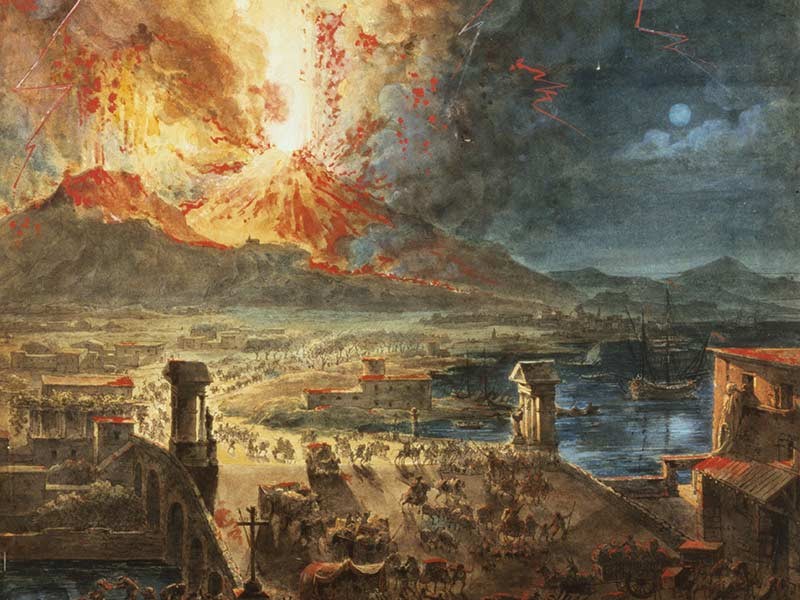

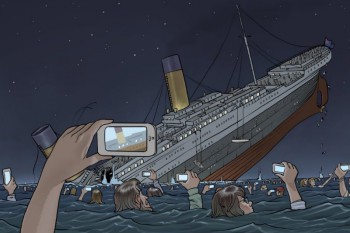
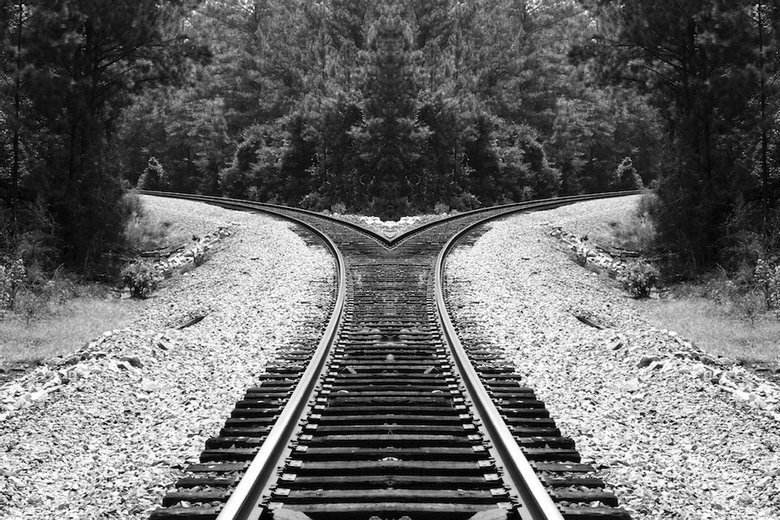
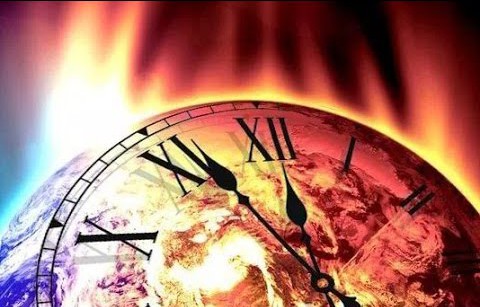

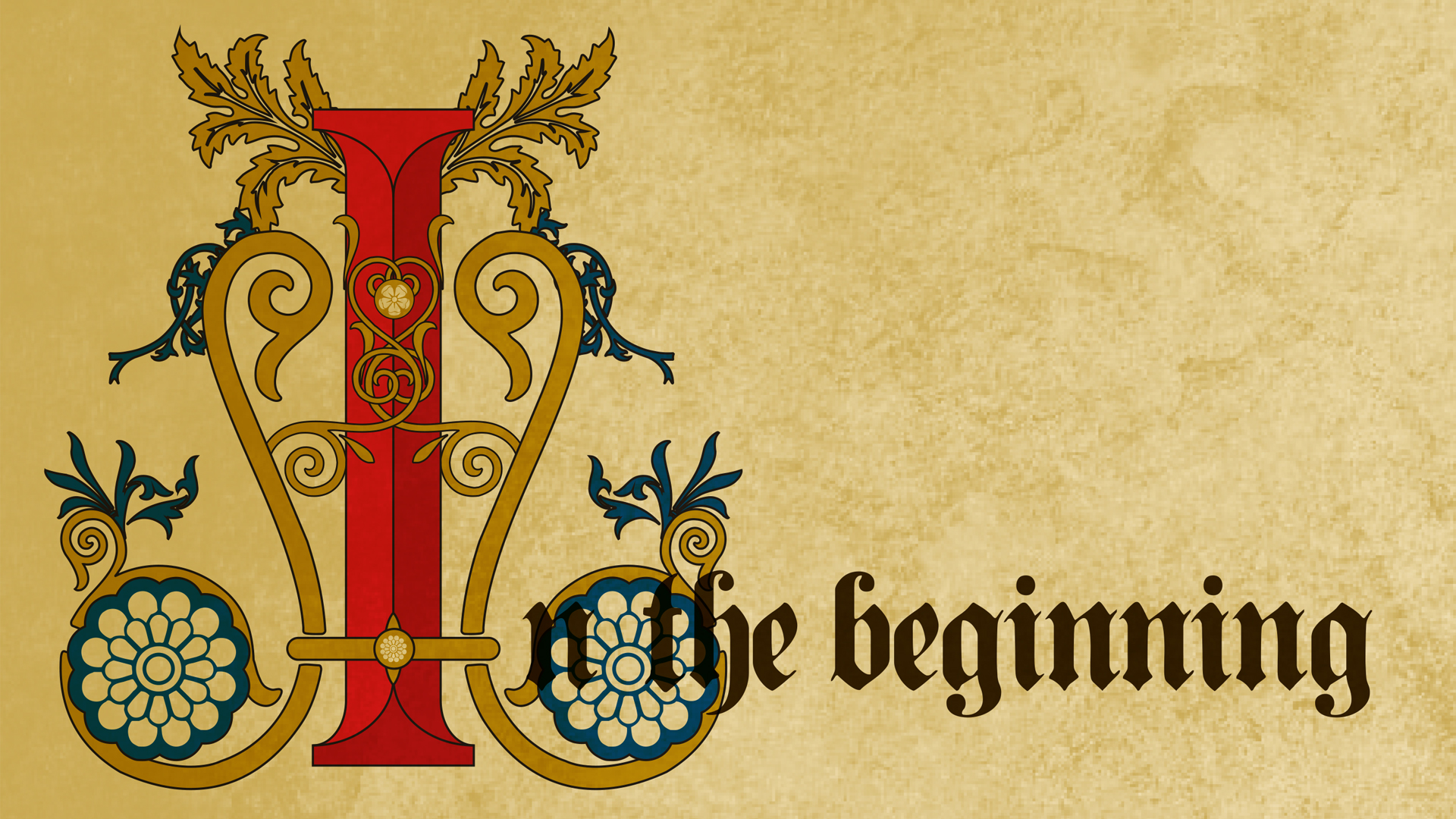

Leave a Reply